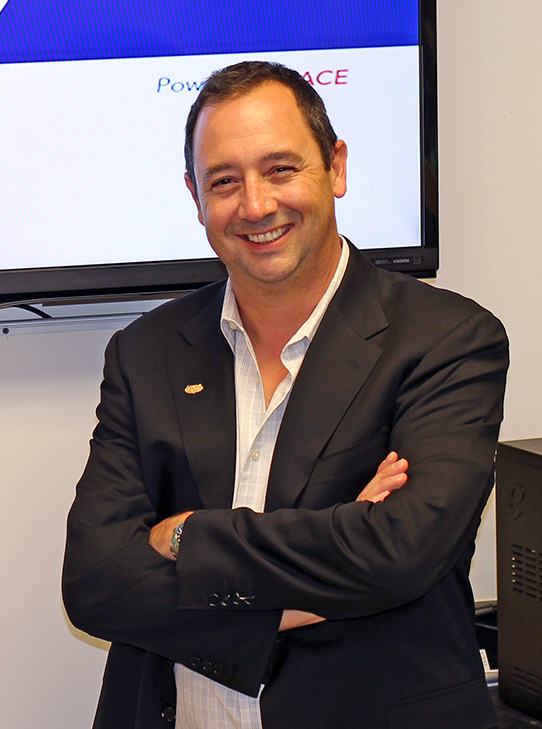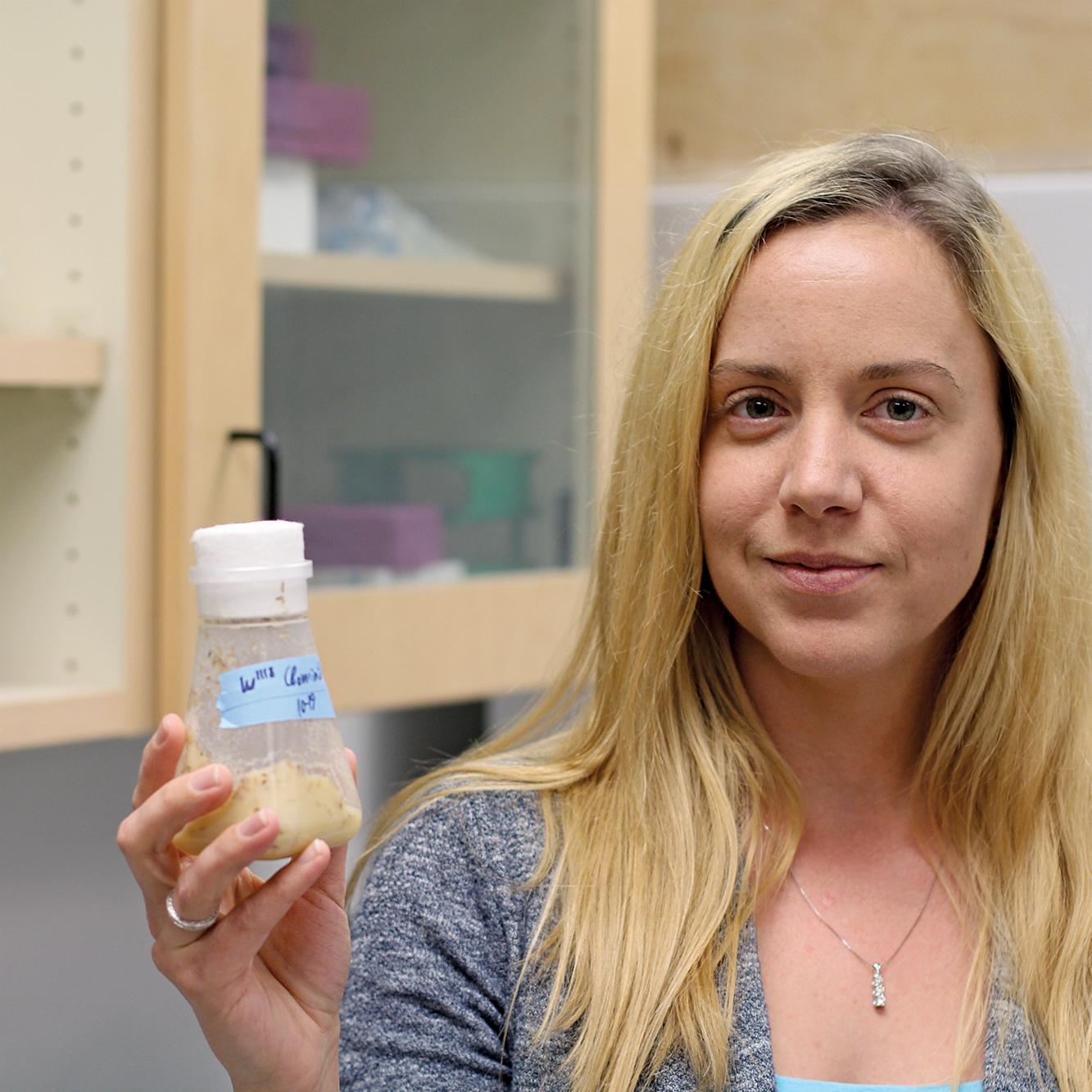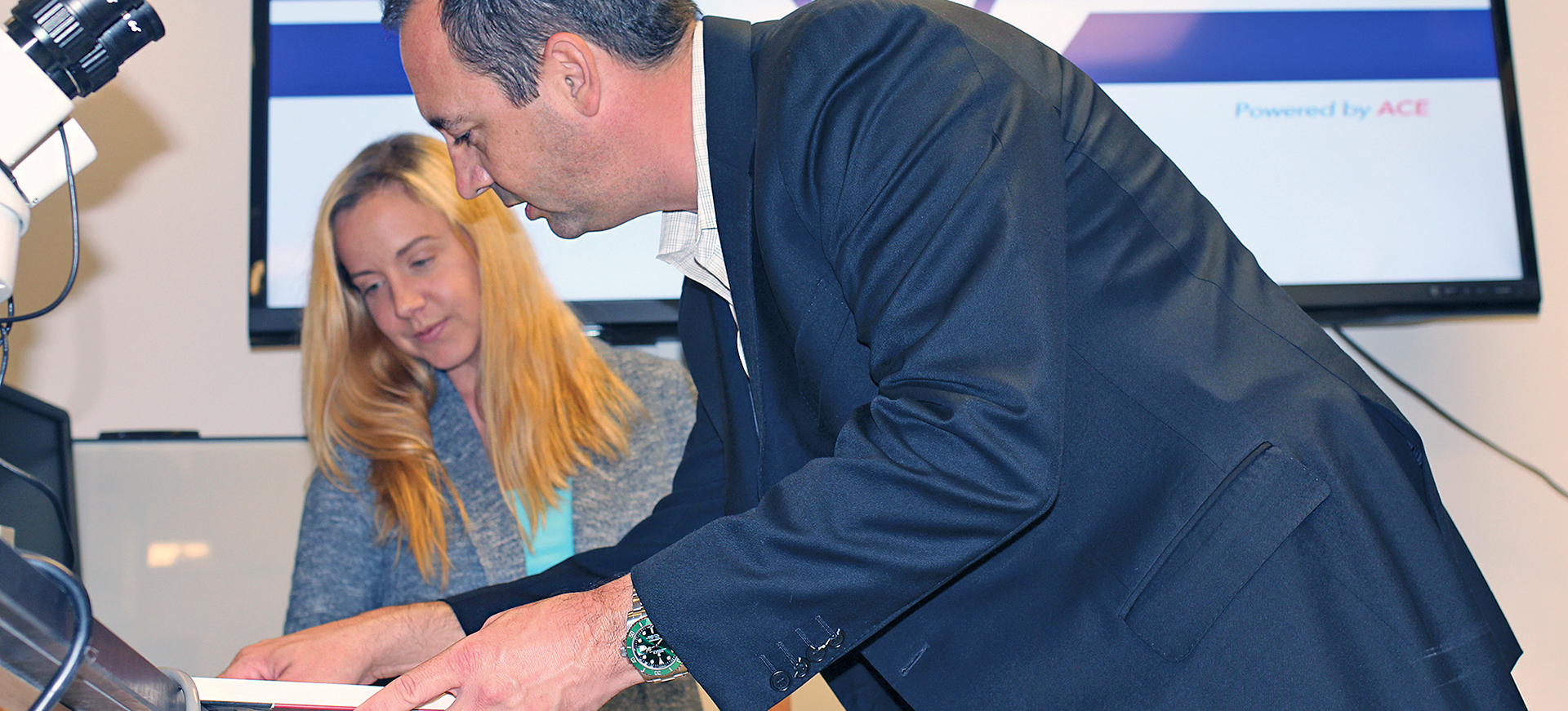Scientist's Path from Bench to Boardroom
After earning his doctorate in neurophysiology at the University of Toronto, Ken Dawson-Scully went to for Olympus Corporation, designing applications for high-end laser microscopes and selling them to universities, hospitals and biotech companies.
"At Olympus, the salary was quite high, but I felt my creativity was dying," recalled Dawson- Scully, now an associate professor in the Department of Biological Sciences and the associate director of the FAU Brain Institute.
He left the high-paying job to take a $40,000-per-year postdoctoral fellowship and hasn't looked back.
"I had career choices of money or love what you do every day and I went with the latter," he said.
Dawson-Scully is one of two FAU researchers whose work to find a treatment for a specific type of debilitating migraine headache helped them join FAU Tech Runway's fourth business accelerator class this year.
Dawson-Scully and his former student, Stacee Caplan, Ph.D., have studied the fruit fly to understand how different animals adapt to different types of environmental stress, such as low oxygen and high temperature.
Their research provides important insight for humans whose brains are deprived of oxygen after suffering a stroke, as well as for people who suffer from febrile seizures that occur with spikes in body temperature.
The pair has patented therapeutic targets for neurological pathologies involving traumatic brain injury, spinal cord injury and stroke. In 2015, Dawson-Scully and Caplan — part of the Jupiter Life Science Initiative — founded Neuro Pharmalogics to develop therapies for people with rare neurological diseases.
They applied, unsuccessfully, for a small business grant from the National Institutes of Health. Undeterred, they entered the Tech Runway Launch Competition 2016, where they had the benefit of mentors from the business and medical fields.
One mentor, a pharmaceutical company executive, helped the scientists streamline their strategy. The executive suggested they rename the company Neuro Pharmalogics instead of its original moniker, Neuro Pharmacologics. Dawson-Scully and Caplan followed his advice.
The counsel the scientists received from Tech Runway changed the course of the company, which is now on its way to big things.
"The pharmaceutical executive on our pitch scrub for Tech Runway said that the migraine market is too competitive of a space," Dawson-Scully said. "He advised us to go after an orphan indication. " That executive is now the start-up's CEO.
The Orphan Drug Act, passed in 1983, provides incentives to find treatments and cures for diseases that affect fewer than 200,000 people in the United States and comes with numerous incentives.
Neuro Pharmalogics, Inc. is now an orphan drug company targeting hemiplegic migraines, a severe type of migraine that sufferers can experience 15 times a month, which can paralyze half the body.
"It's a terrible disease that we can target with our potential treatment," said Dawson-Scully.
The company, which currently has five employees, is raising capital — its initial goal is $2.5 million for pre-clinical work and the initial FDA filing — and working toward FDA approval to begin trials.
"Hopefully we'll have a drug for this disease in the next five to seven years," Dawson-Scully said. "My life's passion is doing research at the university, but I also want my research to serve a purpose in human health. "
"My life's passion is doing research at the university, but I also want my research to serve a purpose in human health."
If you would like more information, please contact us at dorcommunications@fau.edu.

Ken Dawson-Scully, Ph.D., of Neuro Pharmalogics

Stacee Caplan, Ph.D., of Neuro Pharmalogics
